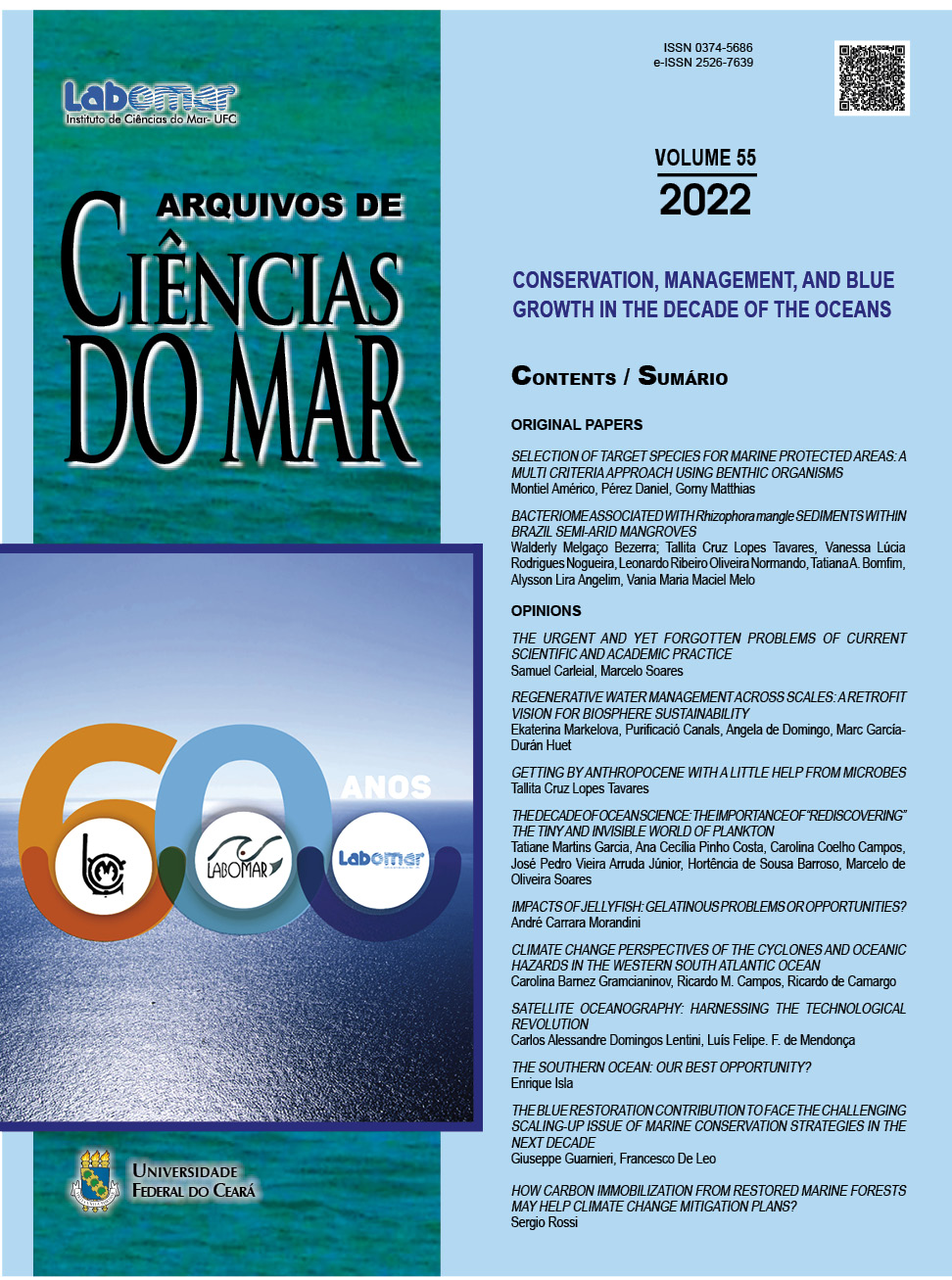REGENERATIVE WATER MANAGEMENT ACROSS SCALES: A RETROFIT VISION FOR BIOSPHERE SUSTAINABILITY
Gestão regenerativa da água em todas as escalas: uma visão retrofit para a sustentabilidade da biosfera
DOI:
https://doi.org/10.32360/acmar.v55iEspecial.78190Abstract
There is a need for consistency in water management across scales and sectors, which motivated this paper to formulate a “proactive” retrofit vision seeking to integrate net-positive, sustainable and regenerative design concepts. Since the Planetary Boundaries framework is the key communication tool from scientific knowledge to political instruments (e.g., Sustainable Development Goals), water-related topics are revised accordingly. It is suggested that the role of water management in Climate Change is largely overlooked, which, in turn, is demonstrated to be the driver of change and, at the same time, impacted by these changes. Furthermore, it is demonstrated that the link between water-related carbon footprint and energy use presents the Climate Change community with a valuable opportunity to better manage two of the most valuable resources. A new approach is suggested by distinguishing water quality, quantity, and water state. So that beyond qualitative and quantitative goals, the physical state of water, which depends on hydrogen bonding, should help improve water management across scales. Understating water complexity shall facilitate communication raising awareness that every action creates a legacy. Overall, this study strengthens the idea that science-based strategies require better communication where biogeochemical science may serve a model to make knowledge more available to educators and policymakers.
Keywords: water-related carbon footprint, molecular water structure, socio-ecological regeneration.
Downloads
Published
Issue
Section
License
1. Proposta de Política para Periódicos de Acesso Livre
Autores que publicam nesta revista concordam com os seguintes termos:
- Autores mantém os direitos autorais e concedem à revista o direito de primeira publicação, com o trabalho simultaneamente licenciado sob a Licença Creative Commons Attribution que permite o compartilhamento do trabalho com reconhecimento da autoria e publicação inicial nesta revista.
- Autores têm autorização para assumir contratos adicionais separadamente, para distribuição não-exclusiva da versão do trabalho publicada nesta revista (ex.: publicar em repositório institucional ou como capítulo de livro), com reconhecimento de autoria e publicação inicial nesta revista.
- Autores têm permissão e são estimulados a publicar e distribuir seu trabalho online (ex.: em repositórios institucionais ou na sua página pessoal) a qualquer ponto antes ou durante o processo editorial, já que isso pode gerar alterações produtivas, bem como aumentar o impacto e a citação do trabalho publicado (Veja O Efeito do Acesso Livre).

